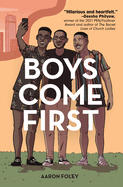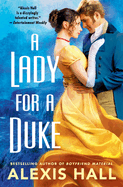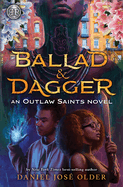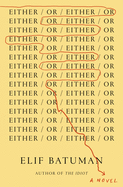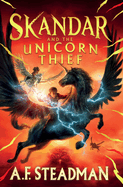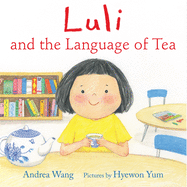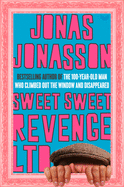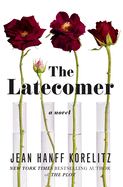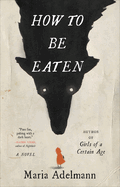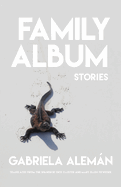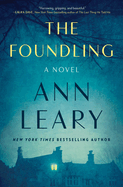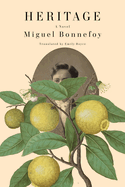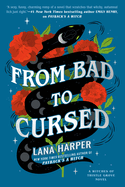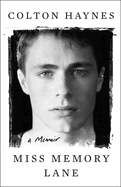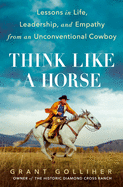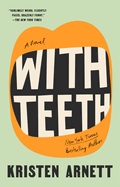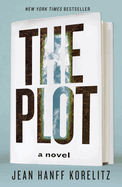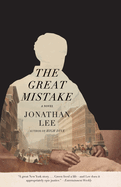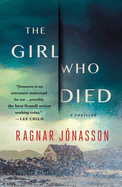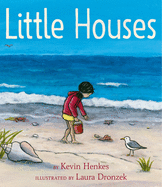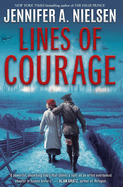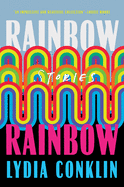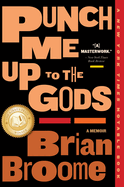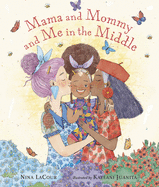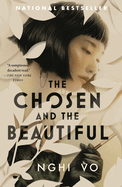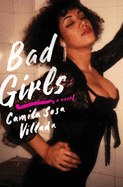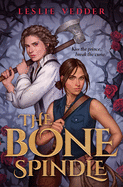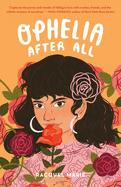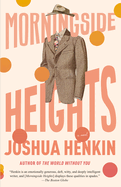Friday, June 3, 2022
Welcome to our LGBTQ+ issue! Among the many books we review this week: Aaron Foley's Boys Come First, with chapters alternating among a trio of gay Black millennial men in Detroit; Alexis Hall's A Lady for a Duke, a Regency romance between a transgender woman and her former best friend; and Kristen Arnett's With Teeth--now in paperback--a dark, often funny portrayal of queer parenthood and midlife from a lesbian mom in a faltering marriage.
In The Writer's Life, authors Phil Stamper (Small Town Pride) and R. Eric Thomas (Kings of B'More) discuss leaving homes, finding opportunities and "making a world [they] didn't have."
Boys Come First
by Aaron Foley
With Boys Come First, Aaron Foley (How to Live in Detroit Without Being a Jackass) offers a delightful novel about romantic and career ambitions, friendship and the particular charms of and challenges faced by gay Black millennial men in Detroit. Chapters alternate perspectives among a lovable trio of friends.
Readers first meet Dominick as he departs New York City's Hell's Kitchen in a fluster: the start-up advertising firm he'd taken a chance on has just failed, immediately before he walked in on his boyfriend of eight years with another man. Dom flees home to Detroit to lick his wounds and reconnect with his old friend Troy. Troy teaches sixth grade at a charter school, eschewing his father's considerable wealth in favor of giving back to the community, but he's frustrated in his relationship with a domineering boyfriend, and the school's charter is now under threat. Feeling a little stagnant, Troy has picked up a mild-to-moderate cocaine habit. Meanwhile, Troy's college friend Remy has styled himself as "Mr. Detroit," a real estate prodigy and local celebrity: outwardly successful, but struggling to find meaningful connection with a partner who wants more than sex.
Boys Come First is rich in flavor and detail, benefiting from Remy's comprehensive knowledge of Motor City neighborhoods, Troy's hyperlocal concerns for his school and Dom's perspective as he returns from afar. Foley's novel shows range, with its fun, silly and pathos-filled handling of the love-and-sex storylines, serious commentary on social issues and an endearing representation of sincere (if troubled) friendships. --Julia Kastner, librarian and blogger at pagesofjulia
Discover: Three gay, Black, millennial men in Detroit face romantic, professional and existential challenges together in this deeply engaging novel about the importance of friendship.
Either/Or
by Elif Batuman
Readers who loved the intellectual musings of The Idiot, Elif Batuman's first novel, will be happy to know that Selin, its heroine, is back for her sophomore year at Harvard in Either/Or. Batuman borrowed a title from Dostoevsky earlier; this time it's Kierkegaard. In autumn 1996, Selin, a student of Russian literature, picks up a copy of Kierkegaard's classic and reads its famous line: "Either, then, one is to live aesthetically or one is to live ethically." She finds that concept "tremendously compelling"--a life dedicated to art instead of having kids and making money. And with that, Batuman and Selin begin another exploration of sex, literature and philosophy. It's the continuation of the story of an apprentice writer struggling to turn acquaintances into fictional creations and wondering if her work is imaginative or dully appropriative.
Interspersed among cultural references that range from André Breton to Frog and Toad are the people Selin knows and their effect on her life. There's Ivan, the math student with whom she is not so secretly infatuated; the classmates whose sexual experiences make Selin lament her lack thereof; her supportive mother; and citizens she meets on a trip to Turkey. Even readers who feel Flaubert was closer to the mark than Kierkegaard when he counseled being orderly in one's life in order to be fierce and original in one's work--as if it's not a question of either/or--will savor this novel. Either/Or is that rare second novel that is superior to the first. --Michael Magras, freelance book reviewer
Discover: The sequel to Batuman's The Idiot is another winning portrait of a year in the life of an intellectually voracious Harvard undergrad and her circle of friends.
Sweet Sweet Revenge Ltd
by Jonas Jonasson, transl. by Rachel Willson-Broyles
Jenny and Kevin are strangers with one thing in common: they've both been horribly wronged by the same man. Fate brings the young couple together to fix their situation in the dark but uproariously funny Sweet Sweet Revenge Ltd by Jonas Jonasson, translated from the Swedish by Rachel Willson-Broyles.
Smooth-talking narcissist Victor bullies the owner of an art gallery into giving him a managerial position and quickly marries the owner's daughter, Jenny, though Victor continues seeing a prostitute. Ten years later, that woman, now dying, reappears with Victor's son, Kevin, and demands Victor provide financial support. Victor makes Kevin live in a shack and sustains the boy with weekly pizza deliveries. On Kevin's 18th birthday, Victor abandons him in the wilds of Kenya, hoping lions will eat him. But Kevin is rescued by Ole Mbatian, a Maasai warrior who becomes the father Kevin never had. The relationship is harmonious until a misunderstanding involving circumcision causes Kevin to return to his old shack, where he finds Jenny. She's been living there since her father died and Victor tricked her into signing over the gallery to him, leaving her penniless. She and Kevin plot to right the wrongs done to them.
Jonasson (Hitman Anders and the Meaning of It All) enlightens readers to the universe's humorous manner of exacting karma. Delighting in the killing of even a fictional character is morally questionable, but what if the character is evil, the demise involves a jar of lingonberry jam and the deed is done in the name of young love? This author has a wickedly fun way of saying it's okay. --Paul Dinh-McCrillis, freelance reviewer
Discover: A down-on-their-luck duo exacts revenge on their evil tormentor in this darkly funny story of karma.
The Latecomer
by Jean Hanff Korelitz
Jean Hanff Korelitz follows her wickedly clever novel The Plot (reviewed below) with The Latecomer, which may lack a traditional plot, yet has multitudes to recommend it just the same. By dint of her mastery of crafting a scene, Korelitz (You Should Have Known) manages to convince readers that whether characters find their peace matters as much as whether a character is, say, found guilty of plagiarism.
The Latecomer is narrated by Phoebe Oppenheimer, the younger sibling of the Oppenheimer triplets, who were conceived through in vitro fertilization in 1981. (Phoebe's "absurdly late appearance" nearly two decades later "screamed family crisis," as one of the triplets puts it, and fairly.) As if traumatized by their forced togetherness in utero, the triplets have--to their mother's enduring despair--spent their lives trying to get away from one another. Harrison railed against the liberalism of his secular Jewish upbringing in Brooklyn Heights and, rather than attend Cornell, his father's alma mater, opted for a conservative two-year college before moving to Harvard. Conversely, Sally and Lewyn went to Cornell, although so determined was Sally not to acknowledge her kinship with Lewyn that she didn't tell her roommate, who was dating him, that he was her brother.
Why all this intra-fraternal rage? That's what Phoebe is trying to figure out. The Latecomer can read like a collection of funny stories, with episodes that elucidate character and sparkle with dialogue-rich scenes that touch on politics, religion, race, privilege and sexuality, but they don't recalibrate the novel's path. That's okay: the occasional telegraphing from Phoebe can feel like a clarifying gut punch to happily unsuspecting readers. --Nell Beram, author and freelance writer
Discover: This entertainingly sprawling multigenerational saga revolves around a family of unhappy New Yorkers whose youngest member is determined to understand her kin.
How to Be Eaten
by Maria Adelmann
Maria Adelmann reimagines the victims of classic fairy tales as modern-day heroines of their own stories in How to Be Eaten, a darkly comedic novel that explores the power of storytelling to shape--and reshape--individual lives.
An invitation is sent to a group of women with strange backstories, asking them to participate in experimental group narrative therapy. In walks Bluebeard's girlfriend, the only surviving lover of the tech billionaire-turned-serial killer; a newly empty-nester whose husband is known as a good, kind hero; a slightly deranged woman named Ruby, who wears the grungy pelt of a wolf for a coat; Gretel, "the one from the strange kidnapping story that captivated the nation more than two decades before"; and a young woman flashing an enormous engagement ring. Week by week, the women return to tell one another their stories--of being kidnapped and threatened, wooed and trapped, corralled and manipulated in any variety of ways. Beyond their true stories, however, they start to explore how they each came into the public eye and in so doing, reveal how each of their stories had been re-framed by the attention paid to it by outsiders.
How to Be Eaten sweeps readers up not in the details of each woman's backstory but in the ways those misconstrued details have been used against them. Adelmann invites readers to think about the power of stories and storytelling, and the often fine line between making space for others' stories and making entertainment (and profit) out of the same. This sardonic, poignant novel is a whip-smart invitation to reimagine familiar fairy tales in a modern age. --Kerry McHugh, freelance writer
Discover: A dark, comedic novel reimagines the victims of classic fairy tales as 21st-century heroines who come together for group therapy to tell their own stories.
Family Album
by Gabriela Alemán, transl. by Dick Cluster and Mary Ellen Fieweger
Family Album, from award-winning author Gabriela Alemán, is a shrewd, beguiling collection. In eight genre-defying stories, the Brazil-born, Ecuador-based Alemán deftly confronts push-button topics like colonialism, identity and religion. Dick Cluster, who translated Alemán's novel Poso Wells (2018), returns here with Mary Ellen Fieweger to provide a smooth English translation.
Immediately notable are Alemán's terse titles that might initially seem oblique, but connections--ironic, sly and downright guffaw-inducing--bring rewarding reveals to careful readers. The opening story, for example, is "Baptism" and begins with a sunken treasure hunt using "Robinson Crusoe's map," and settles into an 81-year-old's hopeful longing to breathe underwater, despite having a single lung. "Family Outing" exposes a group of missionaries, dropping in via helicopter on an isolated Amazonian tribe--arriving in the name of God, armed and dangerous. In "Marriage," a new widow, who thought she'd married a "loser," learns the dead man was a wealthy coke addict (perhaps dealer) who had children she never knew existed. A woman in "Honeymoon" brings home a distraught stranger from a documentary screening only to be told after she sleeps with him that he's that Lorena's husband, John Wayne Bobbit. The closing "Moving Day" turns out to be the story of a not-so-saintly possession that necessitates a mysterious suitcase delivery from Ecuador to Puerto Rico.
At approximately 100 pages, Family Album is surprisingly slim for the absorbing adventures contained within. That Alemán (Humo) proves so deftly misleading--"people assume too many things, one of which is that somebody who writes always tells the truth," a character observes--only heightens the satisfaction at collection's end. --Terry Hong, Smithsonian BookDragon
Discover: Gabriela Alemán's Family Album is a spare, ingeniously multilayered collection of eight genre-defying stories.
The Foundling
by Ann Leary
Discover: Historical fiction set nearly a century ago reveals the practice of confining "defective" women to control their reproductive freedom.
Science Fiction & Fantasy
Heritage
by Miguel Bonnefoy, transl. by Emily Boyce
Novelist Miguel Bonnefoy's Heritage, translated from the French by Emily Boyce, is a compact yet engaging intergenerational saga that follows one family's triumphs and travails in Santiago de Chile. In the late 1800s, Lazare Lonsonier's father emigrates from France to Chile and launches what becomes a successful wine business in the Andes. But when World War I begins, Lazare takes up the call to defend France, facing nightmarish conditions and impossible moral dilemmas. Lazare, returning to his childhood home on Calle Santo Domingo, marries and perpetuates a family line that includes his aviatrix daughter, Margot, and her radical son, Ilario Da, all of whom must face the impossible decisions and interpersonal struggles of the wars and the internal conflicts to come.
The novel, despite its fast pace and concise length, captures the sweeping and poetic promise of any great family epic. With an evocative attention to detail and an eye for those transcendent moments that link lives across time and space, Bonnefoy (Black Sugar) has a talent for communicating both the minute and grand. Because the novel's well-crafted and emotionally resonant characters take center stage, their lives guide readers through the epic nature of major historical events via the intimate experiences of personal transformation. Though the portrait of intercontinental and generational struggle may be this novel's initial appeal for audiences, it is the mesmerizing and enchanting precision of Bonnefoy's writing--the scent of lemons that haunts Lazare or the sound of bird wings flapping in the aviary of Margot's mother--that will linger with readers. --Alice Martin, freelance writer and editor
Discover: Striking a near-perfect balance between meditative beauty and propulsive motion, Heritage is a bite-sized historical snapshot of what binds a family together, despite the forces that tear them apart.
Romance
A Lady for a Duke
by Alexis Hall
Alexis Hall brings his trademark wit and depth of emotion to Regency-era England in A Lady for a Duke, a romance between a transgender woman and her former best friend, the Duke of Gracewood. For two long years Gracewood has thought Viola Carroll dead; everyone believes she lost her life at the Battle of Waterloo. In truth, Viola was nursed back to health by local farmers and seized the opportunity to throw off the constraints of her role as Viscount Marleigh and truly live her life as a woman.
Viola agrees to accompany her sister-in-law, Lady Marleigh, to Gracewood's home in order to help Gracewood's sister make her society debut, even though--or perhaps because--it will force Viola to face her best friend and true love. Though she's heard a bit about Gracewood's condition, Viola is devastated to see him addicted to laudanum and alcohol, poorly managing pain from a severe leg injury and grief over the loss of her. Viola, compelled by an overwhelming mix of guilt and love, brings him back to himself, all the while fearing the day he recognizes her under her makeup and wardrobe.
Fortunately, Hall (Boyfriend Material) doesn't drag out that discovery, but the depth of hurt on both sides is astounding. Hall has a gift for humor but is also skilled at composing passages that evoke the deepest emotions, whether the ache of long-denied love, crushing grief or the relief and soulful joy of being accepted and adored as one's most authentic self. --Suzanne Krohn, librarian and freelance reviewer
Discover: Alexis Hall brings his readers and characters on a powerfully emotional journey through grief, longing, hope and healing in this queer historical romance between childhood best friends.
From Bad to Cursed
by Lana Harper
Lana Harper's From Bad to Cursed, the sequel to Payback's a Witch, is another enchanting paranormal rom-com set in the charming, witchy small town of Thistle Grove. Until one family took over, Thistle Grove's four founding families lived mostly in harmony, each focused on a different branch of magic and building their businesses accordingly. The family of Isidora (Issa) Avramov works with death magic--necromancy, speaking to spirits and summoning demons--so when a witch from another family is hexed in public, the town immediately suspects them. Veterinarian Rowan Thorn and Issa have been at odds ever since he fired her from her volunteer gig at the local animal shelter but, now that someone has tried to kill his cousin, they must work together to bring the culprit to justice.
In pairing a Thorn and an Avramov, Harper (Poison Priestess, writing as Lana Popović) plays with the enemies-to-lovers and opposites-attract dynamic: Rowan's magic is that of life, growth and nature, while Issa's is of death. The strongest scenes are those in which the main characters experience each other's gifts and learn to appreciate both the magic and the person wielding it. The romance itself develops gradually and, once again, Harper dedicates much of the novel to relationships among women and family. Still, Rowan and Issa face the dramatic climactic battle together, their respective skills necessary for peace and community.
Harper cuts the sweetness with just the right amount of spookiness, resulting in a paranormal-lite romance that can be enjoyed any time of year.--Suzanne Krohn, librarian and freelance reviewer
Discover: This paranormal enemies-to-lovers rom-com pushes two witches with opposite magical gifts together as they work to solve a mystery before the culprit strikes again.
Biography & Memoir
Miss Memory Lane
by Colton Haynes
Most celebrity autobiographies seem written with one eye on keeping their public image untarnished, which makes Colton Haynes's memoir all the more jaw-dropping. Miss Memory Lane is a raw, emotionally vulnerable and shockingly frank tale of family malfunction, rampant drug and alcohol abuse and poor self-esteem that leads to trouble.
Haynes was raised in a highly dysfunctional and violent home. His parents met in a Texas rehab. His father had previously been married five times and had three children, and his mother had never been married but had two kids with two different men. From a very early age, Haynes was sexually active. His first sexual experience was at the age of six with his father's adult brother. "This was the first time I had ever felt wanted," Haynes writes. He craved "the feeling of being desired, the feeling of getting someone else's attention." At age 14, he began a sexual relationship with a 42-year-old policeman. "I thought once I'd had him, I would be satisfied," he writes. "But I wasn't. I wanted more." And he certainly gets more. "I was sleeping with anyone who locked eyes with me," he adds later. At 15, he joined a top modeling agency, which led to acting roles, including Teen Wolf and Arrow. Agents and his support team encouraged him to go back into the closet and hide his sexuality. This left him feeling isolated, wrecked his already fragile self-worth and resulted in more drinking and Adderall abuse.
This unrelenting and compelling memoir is by an actor unafraid to unmask his demons. --Kevin Howell, independent reviewer and marketing consultant
Discover: Few Hollywood memoirs are as raw and blisteringly honest as Haynes's sex- and drug-fueled account of his troubled youth that was only accelerated when he became a young actor.
Psychology & Self-Help
Think Like a Horse: Lessons in Life, Leadership, and Empathy from an Unconventional Cowboy
by Grant Golliher
Can working with horses teach humans lessons in understanding, communication and empathy? "Horse whisperer" Grant Golliher certainly thinks so. In Think Like a Horse: Lessons in Life, Leadership, and Empathy from an Unconventional Cowboy, Golliher generously shares with readers the valuable work he does with both horses and people at his Diamond Cross Ranch in Wyoming. His job there as a horse trainer translates into leadership lessons for people, from corporate executives to veterans once again trying to find their place in society. As he tells stories about his own life, as well as the people and horses he has known, Golliher demonstrates how "horses have an extraordinary ability to reveal people to themselves" and thus "become a powerful catalyst for personal growth and leadership development."
At the heart of Golliher's methods is encouraging people to learn to think like a horse and, using that understanding, to "cultivate a willing partnership based on mutual trust and respect, fairness, and clear boundaries." Respect, boundaries and trust are themes prevalent in the anecdotes shared, all underscored by good listening, understanding and forgiveness. Golliher (Chasing a Dream) emphasizes that this is not a proscriptive method or system; instead, it's a philosophy based in empathy for interacting with others in leadership roles and other relationships that can "guide you to the right solutions for whatever situation you happen to be in." By thinking like a horse, people can bring more trust, respect and empathy into their relationships. --Michelle Anya Anjirbag, freelance reviewer
Discover: Horse whisperer Grant Golliher offers a fascinating look at what training horses can teach people about being better humans.
Now in Paperback
With Teeth
by Kristen Arnett
With Teeth, Kristen Arnett's second novel (after her Mostly Dead Things), returns to central Florida for a frank, sometimes dark, often funny portrayal of queer parenthood and midlife from a lesbian mom with a faltering marriage and an unfathomable child.
Sammie turns her back at a local park, and her four-year-old son, Samson, happily walks off with a probable child abductor. She intervenes promptly, but his readiness to leave her for a stranger stays in her mind for years as she struggles with Samson's apathetic and occasionally cruel behavior (he leaves a creepy doll in her bed as a fourth grader, and gets in trouble at work for spitting in someone's drink as a teenager). Her charismatic, successful wife, Monika, provides financially but downplays Sammie's concerns about their son: "Monika got to be the dad-mom, the fun one...." As the years pass, Sammie faces the isolation of parenthood, aging and the heartache of a failing marriage with her own awkward, often self-destructive, always credible style.
Arnett's character-driven narrative focuses on Sammie's point of view, with occasional windows into those of minor characters. These glimpses show Sammie as she appears to others, usually in contrast to the mistaken assumptions she projects onto their reactions. Readers will cringe in sympathy as Sammie self-soothes using alcohol and other means, often followed by public embarrassment. Arnett walks a fine line between humor and pathos, sensitively conveying Sammie's loss of a social circle, her fear that others will judge a lesbian couple unfit to parent a boy, and her abdication of self. Complicated, fearless and confidently messy, With Teeth--named a Best Book of the Year by the Washington Post--should resonate with any reader who has ever felt like a stranger in their own life. --Jaclyn Fulwood, blogger at Infinite Reads
Discover: This dark, tender second novel from Kristen Arnett is a funny but unflinching take on marriage, parenting and midlife from a queer perspective.
The Plot
by Jean Hanff Korelitz
Jean Hanff Korelitz's staggeringly good literary thriller The Plot begins as New Yorker Jacob Finch Bonner arrives at his three-week teaching gig at a low-residency MFA program in Vermont. It feels like--and is--a step back for "the once promising author of the 'New & Noteworthy' (New York Times Book Review) novel The Invention of Wonder." Jake's writing career is at a standstill: his follow-up novel tanked, and he hasn't published since.
One consolation of his teaching job is that Jake knows his work is at least a cut above the puerile prose of his students--that is, until, during a teacher-student chat, Evan Parker shares aloud a synopsis of his planned novel. Jake can't disagree with Evan's appraisal: "This story I'm writing, it's like, a sure thing." But the prospect of its publication seemed to evaporate with Evan's death, which Jake learns about while poking around on the Internet a couple of years later.
Fast-forward three more years, and Jake, having convinced himself of the uprightness of stealing Evan's plot ("A great story... wanted to be told"), finds his name on the cover of two million copies of the New York Times bestseller Crib. Jake is certain that only he knows the book's origin--until the day he receives a disturbing e-mail, the first of several of an increasingly worrisome kind.
In The Plot--a New York Times Notable Book of 2021--Korelitz (You Should Have Known) demonstrates masterful control with her incremental release of big reveals. As they did in the the novel's fictional universe, Oprah and Spielberg would do well to rally around Korelitz's lollapalooza. --Nell Beram, author and freelance writer
Discover: This staggeringly good literary thriller is about a staggeringly good literary thriller written by a failed novelist who has stolen the book's plot from a deceased student.
The Great Mistake
by Jonathan Lee
The Great Mistake--one of the Guardian's Best Books of the Year--begins with the murder of the historical figure Andrew Haswell Green (1820-1903), a city planner who was known in his day as the Father of Greater New York. Jonathan Lee's wondersome novel proceeds to piece together the events that led to Green's death, but the book's central mystery is psychological, not circumstantial: Why did someone so renowned for his civic contributions lead such an emotionally unfulfilling life?
Chapters dedicated to the city's investigation into Green's murder twine with chapters charting his past, from his inauspicious beginnings on a Massachusetts farm ("His family feared he might one day succumb to the catastrophe of being a poet") through his maturation into the person who helped establish such enduring Manhattan landmarks as Central Park and the Metropolitan Museum of Art. Green sought to "create work for himself that might fill him with pride instead of shame," but his shame wasn't restricted to his humble origins: Lee writes heartrendingly of a closeted romance between Green and Samuel J. Tilden, who would become the governor of New York.
Lee (High Dive) has done a masterly job reviving and embroidering the life of an undersung public figure who crossed paths with other notables; The Great Mistake features cameos by, among others, Green's occasional adversary Frederick Law Olmsted. With unshowy dexterity, Lee conjures the inner life of a man widely regarded as, the novel suggests, "a person who, in his last twenty years, had campaigned tirelessly against the idea of isolation, while himself remaining isolated." --Nell Beram, author and freelance writer
Discover: This affectingly wistful biographical novel about Andrew Haswell Green, the city planner behind several Manhattan landmarks, probes two mysteries: his violent death and his unfulfilling life.
The Girl Who Died
by Ragnar Jónasson
With his thrillers centered on cop Ari Thór Arason (Snowblind; Rupture) and detective Hulda Hermannsdóttir (The Darkness; The Island; The Mist), Ragnar Jónasson has proved himself to be a go-to author for Nordic noir. The Girl Who Died delivers Jónasson's usual sublime atmospheric puzzle but with bonus chills, courtesy of an apparently haunted house.
It's 1985, and 30-year-old substitute teacher Una is languishing in Reykjavík when she reads a seductive ad: "Teacher wanted at the edge of the world." She lands the winter-term-only job, which brings her to the remote village of Skálar, population 10 per the last census. The job includes accommodations in the home of Salka, a single woman on the local council, and Salka's seven-year-old daughter, one of the two kids Una will teach. The job is a cakewalk, although Una wishes the villagers weren't quite so obvious with their opinion of her as an interloper, and she could do without the intermittent confrontations with a ghostly presence at Salka's house. When tragedy strikes at the village Christmas concert, Una must deal with the obfuscating darkness of both Skálar in winter and its citizens.
The Girl Who Died is interwoven with passages recounting a notorious murder in Iceland that bears on the happenings in tucked-away Skálar. Not for the first time, Jónasson demonstrates a gift for capturing the particular loneliness that attends physical isolation. Of course, Una's alienation is exacerbated by the personal demons she's fighting, not all of which come from the bottle she keeps handy. --Nell Beram, author and freelance writer
Discover: This sturdy stand-alone thriller by a preeminent Icelandic crime writer harbors a ghost story that ratchets up the chill factor.
Children's & Young Adult
Ballad & Dagger
by Daniel José Older
This magnetic and memorable urban fantasy features a young musician from a diaspora, who is destined to bring his people home.
Fifteen years ago, the free Caribbean island of San Madrigal sank, and its residents--a diverse community of Sephardic Jews, Santería practitioners and pirates--migrated to Brooklyn, N.Y. They've been "a lost diaspora from a lost island" ever since. Sixteen-year-old Mateo, whose childhood was spent traveling with his doctor parents, feels even further removed from home. He tries to combat his "double diaspora" by becoming a "kamero" (traditional musician) and learning the intricacies of his people's songs, but he still feels stuck somewhere in between. Until the night of the Grand Fete, that is, when one of the community leaders announces it is time to reveal "the three initiated, fully awakened children of the original spirits of San Madrigal." This trio is prophesied to raise the island and, unbeknownst to him, Mateo is one of them.
In Ballad & Dagger, the first in a duology, Daniel José Older (Dactyl Hill Squad; Shadowshaper series) artfully explores themes of diaspora, colonialism, colorism and identity while immersing readers in a thoroughly established political system, history and culture. Older takes his time explaining San Madrigal's mythology and its people and effortlessly knits Spanish words into the text, cementing readers in Mateo's world. This YA action-adventure is given a layer of ethereal dreaminess by Mateo's attempts to relate to his home and its people through music ("Every song has its beating heart, but our people are a song unto themselves"). A captivating urban fantasy. --Lana Barnes, freelance reviewer and proofreader
Discover: A 16-year-old Brooklyn musician is the embodiment of one of his homeland's original spirits and must help raise his people's sunken Caribbean island in this entrancing, memorable urban fantasy.
Skandar and the Unicorn Thief
by A.F. Steadman
Mainlanders believed unicorns were only a myth. But when the Islanders revealed their secret--unicorns are real--Mainlanders learned "unicorns don't belong in fairy tales; they belong in nightmares." The magical creatures of lore are not for the fainthearted in this exhilarating and wildly imaginative middle-grade fantasy debut from A.F. Steadman.
Unicorns are dangerous, bloodthirsty and immortal. They become slightly less vicious when bonded with a rider, so destined children are found and trained to channel the creature's magic. At 13, children take the Hatchery exam--those who pass may attempt "to open the Hatchery door on the Island" and find a unicorn egg. Skandar has watched years of rider/unicorn pairs competing in the Chaos Cup and dreams of joining their ranks. Thus, he is devastated when his teacher inexplicably denies him the test and astonished when a mysterious rider whisks him away to the Island anyway. But nothing there is as he expected. Unicorn riding isn't all winning challenges--Skandar must learn to fight. The Islanders are terrified of a shadowed figure called the Weaver and Skandar must learn how to work as an effective battle team with his unpredictable unicorn, Scoundrel's Luck. As Skandar works to uncover the Weaver's secrets, he realizes he may be the Island's only hope.
Steadman fantastically reinvents the traditional Western unicorn mythology by inverting the classic images--serene, majestic, noble, gentle, sparkly--and presenting instead a creature that is ferocious, deadly and nearly unstoppable. Skandar and the Unicorn Thief is filled with incredible worldbuilding, a fully realized system of magic and an unforgettable cast of riders and unicorns. --Kyla Paterno, freelance reviewer
Discover: Thirteen-year-old Skandar trains to become a rider of ferocious, deadly unicorns in this exhilarating and imaginative fantasy.
Luli and the Language of Tea
by Andrea Wang, illus. by Hyewon Yum
In her author's note, Andrea Wang (Magic Ramen; Watercress), the daughter of Chinese immigrants, recalls her wonderment at learning that the word for "tea" is similar in many languages: "Why was this?" Readers of her gladdening picture book Luli and the Language of Tea, illustrated by Hyewon Yum (Saturday Is Swimming Day; Not Little), don't need to know why to grasp Wang's message: that generosity can be a universal language.
In "the playroom" (a childcare classroom per a sign by the door), Luli is surrounded by other kids who can't speak English, all of whom are playing alone. Today she has come prepared. From her backpack she produces tea-making gear; after she has set up, she calls "Chá!"--"tea" in Chinese. Upon recognizing the word "Chá!," the kids respond with the word for "tea" in their primary languages and then gather around Luli's table. She passes cups of tea to the child beside her, who passes them on and so forth, until... uh-oh: there's no tea for Luli! Happily, the kids have a solution. By story's end, "Luli's teapot was empty, but her heart was full."
Yum demonstrates her facility with colored pencils in Luli'sclassroom scenes and endpapers, in which a glorious spread captures an assortment of teacups, each decorated in a style suited to the country it represents. But the book's most pleasing illustrations are the aerial views of the kids sitting at Luli's table; the intricately decorated teapot may be the centerpiece, but Luli is the star. --Nell Beram, freelance writer and YA author
Discover: A Chinese American girl's offering of tea brings together children of diverse backgrounds in this gladdening picture book about how generosity can be a universal language.
Little Houses
by Kevin Henkes, illus. by Laura Dronzek
In many of Kevin Henkes's books, children long to make a connection with others. But in Little Houses, Henkes and Laura Dronzek's poetic, meditative picture book, the nameless young (human) narrator is happy to keep her marvelous discovery to herself.
When she visits her grandmother's beach house, the narrator feels as though she's being summoned by the ocean: "Sometimes I think someone/ is calling me./ But it's just the waves/ coming in, going out." While the girl and her grandmother are on the beach looking at shells, Grandma reminds her that shells are little houses--"and that," explains the narrator, "gets me thinking." She mulls over how different each shell is and wonders who lives inside them--or is it ghosts? Little Houses offers a series of reflections by a narrator who considers the expedition itself as rewarding as finding answers: "I'd like to know/ what a pelican thinks of a sandpiper/ and if a snowy egret has ever seen snow./ So right now, I'll walk up and down/ the beach/ looking for little houses/ and thinking about everything I don't know."
In his plot-driven picture books, Henkes presents stories that conclude with clarity and understanding. Dronzek, who has previously collaborated with Henkes on other great outdoors-themed titles (When Spring Comes; Summer Song), paints with a sumptuous nautical palette and favors bold, plainly defined imagery. While she is sufficiently awed by the animal kingdom to render birds and sea life realistically, not even a staunch naturalist would begrudge her the occasional smiling pelican. --Nell Beram, freelance writer and YA author
Discover: In this poetic, reassuring picture book meditation, a girl is swept up in wonderment after her grandmother reminds her that the shells on the beach are tiny houses.
Lines of Courage
by Jennifer A. Nielsen
The brutality and complexity of World War I is expressed in Lines of Courage, a gripping, elaborately configured account of the "war to end all wars." The lives of five young protagonists from different countries intertwine as they come of age during the terrible years of war.
This expansive novel is divided into five sections for each of the young people it features but, as the war advances, the breathtaking, heartbreaking stories begin to spill over. The novel begins with the 1914 assassination of Archduke Franz Ferdinand as witnessed by 12-year-old Felix, a Jewish boy from the Austria-Hungary empire, and progresses to the end of the war, almost four-and-a-half years later. Along the way we meet Kara, a British girl who wants to be a Red Cross nurse; Juliette, separated from her family when they are evacuated from their French home; Dimitri, a Russian farm boy sent by his Tsar to the front with no weapon; and Elsa, daughter of a major in the German army. Great Britain, France and Russia are allied against Germany and Austria-Hungary, but these five children are less concerned about hating their enemies than they are with the day-to-day trials of survival.
Jennifer A. Nielsen (A Night Divided; The Traitor's Game series) sensitively conveys both the wretchedness and the hope of an adolescence spent in trenches, caves, prison camps, ambulance trains and even clean, pleasant officer's quarters. It's a lot to take in--but then, so was the Great War. --Emilie Coulter, freelance writer and editor
Discover: Jennifer A. Nielsen delivers another powerful work of historical fiction in this novel that captures the mind-boggling devastation and heart-aching bonds found in World War I.
Celebrate LGBTQ+ Pride
The Writer's Life
Phil Stamper and R. Eric Thomas: Agents of Change
Authors Phil Stamper and R. Eric Thomas had a conversation in the days leading up to the publication of their new books: Stamper's first middle-grade novel, Small Town Pride (HarperCollins), and Thomas's YA debut, Kings of B'more (Kokila).
 |
|
| R. Eric Thomas | |
Stamper is the author of The Gravity of Us; As Far as You'll Take Me; Golden Boys; and other queer books for kids and teens. Thomas is the author of Here for It, or How to Save Your Soul in America; he is also a television writer, a playwright and the long-running host of The Moth in Philadelphia and D.C.
Here they discuss leaving home, finding opportunities and creating their own universes.
Phil Stamper: Hi Eric! So excited to chat, since you know how much I loved your debut, Here for It.
 |
|
| Phil Stamper | |
R. Eric Thomas: Phil! I'm so thrilled to be talking to you, too! Readers won't know this, but one time I ran into you in real life outside of the Penguin Random House building and I worry that I freaked you out with my enthusiasm.
PS: Ha! That was the most disorienting experience. I work at PRH, so I was in full publisher mode, and seeing my two worlds collide right in front of a revolving door was hilarious. BUT I was so happy to meet you! I'd been a fan of your column for a while, and I was freaking out too.
RET: I'm glad the freakout was mutual.
I can't wait to get my mitts on Small Town Pride! You're prolific; I'm sure you get this question all the time but, like, how? Did you make a deal with Rumpelstiltskin or something? What's the secret?!
PS: Honestly, as a querying writer, a writer on submission and then a debut author, you hear all these stories about how if your first book doesn't do well, then you're doomed. I think I was mostly desperate, to be frank. I had so many stories I wanted to tell, and I was so eager to get them out in the world. That said, I think I have a healthy work-life balance now.... I'm so proud of the books I have on shelves, and I can't wait to celebrate the launch of Small Town Pride. How are you feeling leading up to the launch of Kings of B'more?
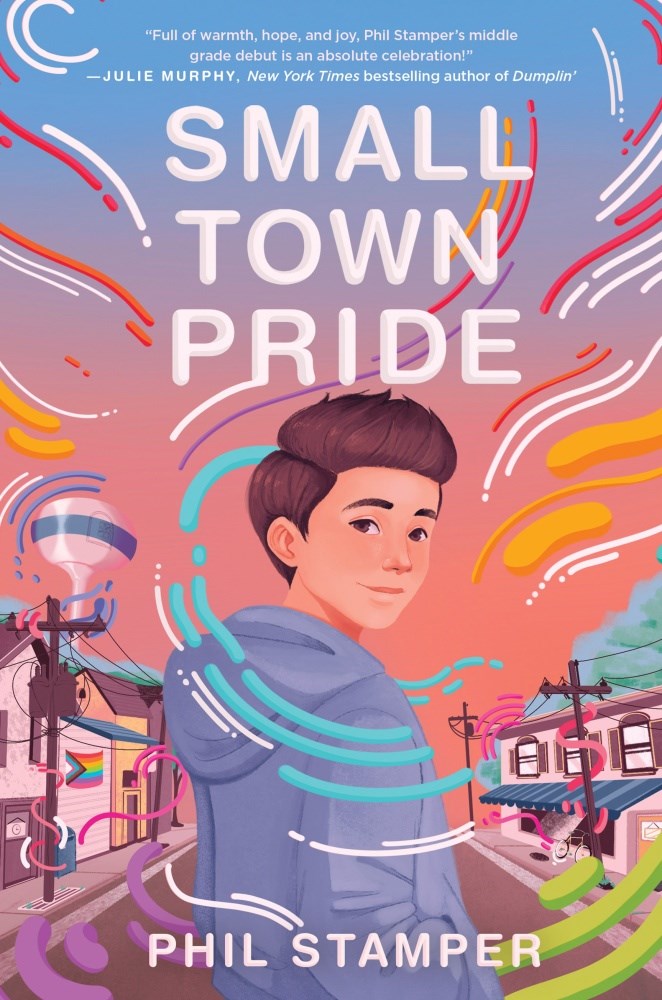 RET: What you said about being desperate really resonated with me. I've tried so many doors throughout my working life and when I find one that's open, I run through it. Kings of B'more was one of those doors. My editor, Joanna Cárdenas, reached out to me after reading Here for It and said that the chapter about a friend I made in high school really stuck out to her. After talking with Joanna, the whole thing just came to me: a romp about platonic love. It's a contemporary riff on Ferris Bueller's Day Off that focuses on two Black queer best friends who face an impending move they fear will separate them. I honestly can't wait for this book to be in the world and for people to meet these characters. I love writing memoir, but there's something so magical about a fictional world and all its idiosyncrasies and foibles. You've got two worlds you're navigating this year, with Golden Boys and Small Town Pride. Do they feel hugely different for you or is it all part of one Stamper-verse?
RET: What you said about being desperate really resonated with me. I've tried so many doors throughout my working life and when I find one that's open, I run through it. Kings of B'more was one of those doors. My editor, Joanna Cárdenas, reached out to me after reading Here for It and said that the chapter about a friend I made in high school really stuck out to her. After talking with Joanna, the whole thing just came to me: a romp about platonic love. It's a contemporary riff on Ferris Bueller's Day Off that focuses on two Black queer best friends who face an impending move they fear will separate them. I honestly can't wait for this book to be in the world and for people to meet these characters. I love writing memoir, but there's something so magical about a fictional world and all its idiosyncrasies and foibles. You've got two worlds you're navigating this year, with Golden Boys and Small Town Pride. Do they feel hugely different for you or is it all part of one Stamper-verse?
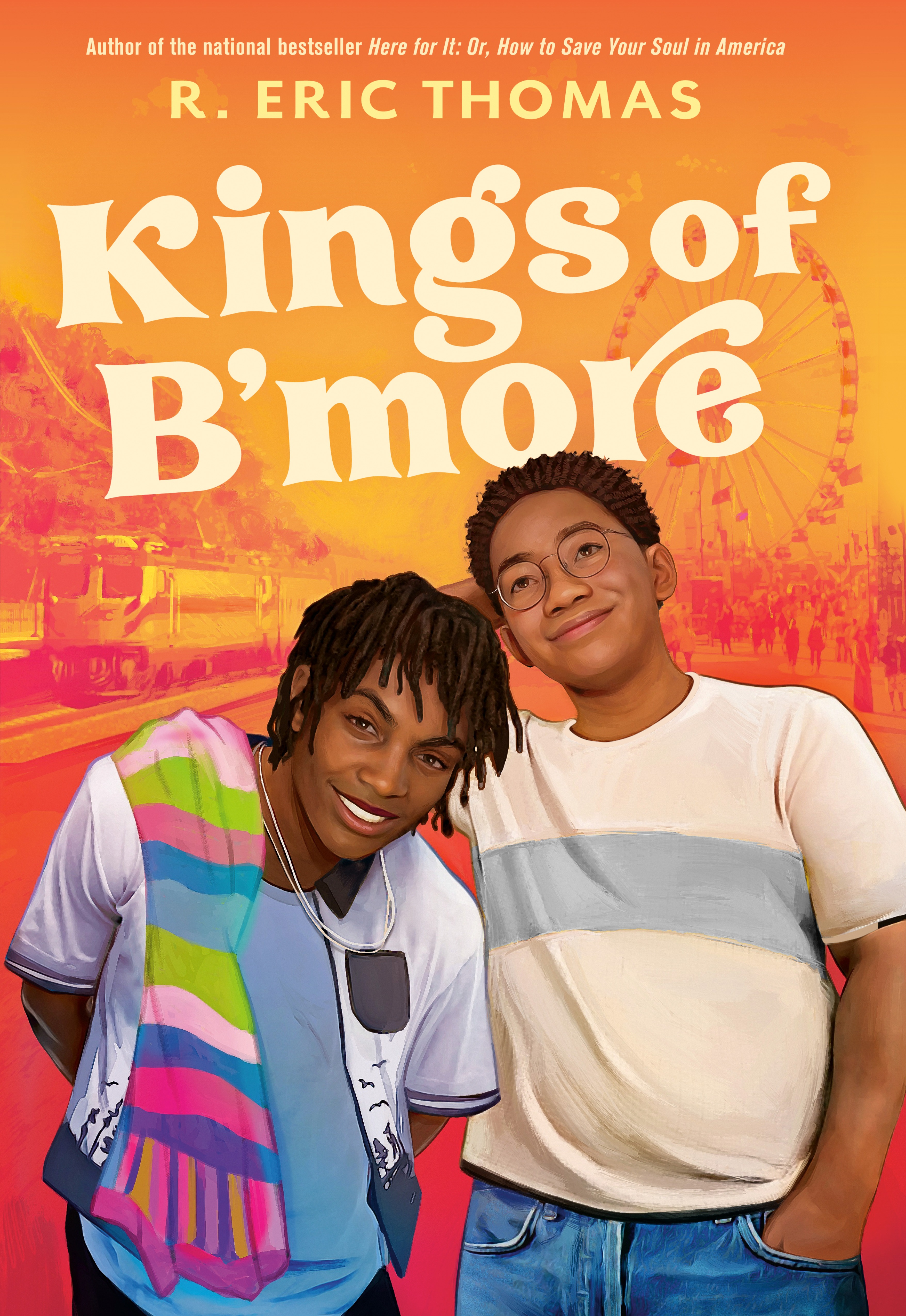 PS: The Stamper-verse!!! I love it. I will say I relate to a lot of what you said, and your book sounds incredible. My "worlds" are all interconnected, to some extent, but I think the biggest difference going into my 2022 books is a perspective shift: my YA books are all about leaving your hometowns, your comfort zones, and finding joy elsewhere. But with my middle-grade debut, which follows a 12-year-old rural kid who ultimately throws his town's first Pride festival, I really wanted to bring that sense of queer joy home. I got to reimagine my own, challenging upbringing as a gay kid in rural Ohio and see what it would have been like if I said, "No, I don't want to leave. I want to make my village a more accepting place." So, in that way, Small Town Pride is the biggest departure from the Stamper-verse. Speaking of departures, how challenging was it to shift from adult memoir to YA fiction?
PS: The Stamper-verse!!! I love it. I will say I relate to a lot of what you said, and your book sounds incredible. My "worlds" are all interconnected, to some extent, but I think the biggest difference going into my 2022 books is a perspective shift: my YA books are all about leaving your hometowns, your comfort zones, and finding joy elsewhere. But with my middle-grade debut, which follows a 12-year-old rural kid who ultimately throws his town's first Pride festival, I really wanted to bring that sense of queer joy home. I got to reimagine my own, challenging upbringing as a gay kid in rural Ohio and see what it would have been like if I said, "No, I don't want to leave. I want to make my village a more accepting place." So, in that way, Small Town Pride is the biggest departure from the Stamper-verse. Speaking of departures, how challenging was it to shift from adult memoir to YA fiction?
RET: It's funny because a lot of readers have expressed surprise that I'm shifting genres. For me it's all about voice: I'm always just looking for the right story to fit the voice. Slipping into YA fiction was easy for me; it felt like coming home, to borrow ideas from the new Stamper-verse. I think, and I wonder if you agree, a lot of opportunity in writing fiction, be it in middle-grade, YA or other categories, is to make a world we didn't have. I don't know that I believe we can heal what was broken for us by writing fiction (that's what therapy is for). But I think that we can be change agents in the world as it is and open new possibilities for those coming after us. Is that the experience you've had?
PS: It's funny to hear you talk about voice--as a reader of your work, I had no concern that your voice would translate well to YA fiction! I would often read your pieces and think, "God, I wish I could write like that." But to your question, that's absolutely the experience I've had. I think it's easy to fall into a trap where you're reminiscing or writing self-insert fanfiction of your own life. Now that I have a few books out there, I've been able to take different pieces of myself and turn them into something that means a lot to me. It's special (and lucky, I guess!) that it also means a lot to readers. Have you had any feedback from teen readers yet? They are the best, most passionate people out there, especially when you write queer YA.
RET: Yes! Teen readers offer such an incredible perspective. I am always going to seek out teens and librarians to read everything I write in the early stages. Those who read Kings of B'more early have been extremely excited about it, so I'm hopeful. I'm also hopeful that Small Town Pride and Kings of B'more will put us in the same physical space again. I promise not to freak out (as much) next time I see you.
PS: I hope so! And no promises--after the last few years, I get even more excited seeing author friends out in the wild. Thanks so much for chatting with me!
RET: Thanks for chatting with me, too! Happy Pride!
Book Candy
Book Candy
The New York Public Library had some recommendations for new LGBTQ fiction and nonfiction for Pride 2022.
"You're (probably) saying it wrong," Merriam-Webster noted in featuring "18 words even you might be mispronouncing."
Open Culture invited readers to "behold the Augsburg Book of Miracles, a brilliantly-illuminated manuscript of supernatural phenomena from Renaissance Germany."
"Suspects & suspicion: what Jane Austen teaches us about who (and who not) to trust." (via CrimeReads)
Morningside Heights
by Joshua Henkin
In Morningside Heights, a complex and character-driven novel, Joshua Henkin (The World Without You; Matrimony) explores what is lost and gained in loving another person: a parent, a spouse, a child, a sibling, a friend.
When Pru moves to New York City in 1976, she thinks she knows what she wants. But while studying Shakespeare, she falls head over heels for her grad school professor--a cliché even to her, as an active participant in the affair--and ultimately abandons her academic pursuits in favor of marriage to the brilliant Spence Robin. The two have a daughter, Sarah, and occasionally host Spence's son, Arlo, for visits. Each week, Spence visits his sister, Enid, brain damaged from a drunk driving accident as a teen, in a nearby nursing home. Sarah goes to college. Arlo meets Enid. Spence teaches. Pru gets a job in fundraising. Life ticks on.
And then, decades later, Spence begins acting oddly. Forgetting words, moments, names. Mixing up details, missing classes. He and Pru attend a costume party in black tie clothing when Spence misunderstands "festive" attire to be "formal" attire. It's almost funny, except that there is an underlying concern to the scene that implies there is something more sinister than a need for better reading glasses. Readers will not be surprised when these symptoms ultimately lead to a diagnosis of early-onset Alzheimer's; Pru, on the other hand, is caught off guard, once again finding that the life she thought she had planned out is gone.
This diagnosis drives Morningside Heights forward to its sadly inevitable conclusion. Alzheimer's, after all, remains incurable. Drawing in part on his own experience watching his father battle the disease, Henkin explores with great tenderness the many, many challenges of losing a loved one to Alzheimer's, the ways in which it both saddens and frustrates, moves too slowly and also entirely too fast. "Tell me all the things I'm going to forget," Spence says to Pru shortly after his diagnosis. "Will I forget to love you?... Don't let me forget to love you."
It is impossible to read such an exchange and not be moved, not to see the gentle ways Henkin picks and probes at the unique form of loss that Alzheimer's puts a family through. Despite this, though, Morningside Heights is not, ultimately, a sad novel. Henkin imbues it with a sense of hope, a kind of appreciation for the mundane moments that make up a life, the relationships that define not just who a person is, but what they can become.
Though Pru and Spence's relationship forms the backbone of Morningside Heights, Henkin expertly moves between the internal and external thoughts of each of the many characters in its pages. In so doing, the novel offers nuanced perspectives of the relationships among them. Pru sees herself as a professor's wife, then as caregiver for an ailing husband; a mother who heaps praise upon her daughter, and a stepmother who sometimes stumbles in finding patience for a troubled stepson. Arlo yearns for love and stability from his mother, his father, Pru, from anyone in his family, and, failing to find it, settles for attention instead. Sarah antagonizes her half-brother only to wish for his company when he's gone.
The true depth of Morningside Heights lies in Henkin's ability to portray each of these relationships at a particular moment in time, but also in the ways that they--like all relationships--are fluid. In speaking of his relationship with Spence, Pru tells Arlo, "There's regret on both sides. But that doesn't have to be the end of the story." And it is not the end of the story, metaphorically or literally; this exchange happens midway through the book, despite it being near the end of Spence's life.
Henkin uses these connections and the moments they are made of to move Morningside Heights backward and forward in time, from Pru's arrival in New York in the 1970s to Spence's funeral in the early 2000s. This is not, however, a novel of flashbacks or vignettes; the shift from past to present and back again is so fluid that the effect is kaleidoscopic, each moment bleeding into the next in ways that shed new light on what we know and understand about this family and its many dimensions.
Morningside Heights is powerful in a quiet, unsuspecting way. Nothing particularly big happens. There are no twists, no magical cures to Spence's illness, no perfect resolution between characters who have been unkind to one another over the years. But in Henkin's masterful hands, this story of everyday events becomes bigger than the sum of its parts, a novel that explores what it means--and what it takes--to love another person, and to be loved in return. --Kerry McHugh
The Questions Fiction Asks and Answers
An Interview With Josh Henkin
 |
|
| (photo: Michael Lionstar) | |
Joshua Henkin is the author of four novels, including Matrimony and The World Without You. His fourth novel, Morningside Heights (now available in paperback from Vintage), explores the relationship between Pru and her husband, Spence, as he is diagnosed with early-onset Alzheimer's. Henkin lives in Brooklyn, N.Y., and directs Brooklyn College's Fiction MFA program.
There are multiple story threads in this novel--was there one that started as the seed?
I wrote over 3,000 pages for Morningside Heights. That's how I always work: write thousands of pages, throw most of them out and, eventually, I find the heart of the novel. Morningside Heights started as a very long short story that took place at a class for caregivers at a Jewish community center on Manhattan's Upper West Side. The seed for the book was my mother's experience in a similar class when she was caring for my father. My mother is not the kind of person who gravitates toward such classes--toward adult education in general--and I was interested in what it would be like for someone like her to be thrust into contact with strangers in this way. The first draft of the book began at the JCC. By the 20th draft, the JCC was in the garbage pail, though one character from the class remains.
That's a lot of drafting! Is it safe to assume, then, that you don't work from an outline?
I definitely don't start with an outline; I don't even start with an idea. A college classmate of mine wrote her psychology thesis on how adults group objects versus how kids group objects. The adults group the apple with the banana, and the kids group the monkey with the banana. That's another way of saying that kids are more natural storytellers than adults are. The fiction writer's job is to think like a child again--albeit like a smart, sophisticated child. I think it was E.L. Doctorow who said that writing a novel is like driving on the highway in the dark. The lights illuminate only the few hundred feet ahead of you, but if you keep driving a few hundred feet at time you get across the country. I start with a character or a situation, or sometimes just with a line of prose. I eventually outline, but that's many years in, once I have the mess of thousands of pages in front of me.
Morningside Heights is very character-driven; was there a particular character whose story you found easier to get into? Or harder?
They're all impossible. That's why it took me seven years to write this book! Writers need to be a lot of things, but they need to be compulsive most of all. I wouldn't say Arlo was easier than any of the others, but there was something about discovering him that really opened up the book for me. I was a couple of years into writing when I said to myself, What if Spence had been married previously, and what if he had a son? I gave it a try, and the book moved in directions I couldn't have anticipated. Although the book's central character is definitely Pru, Arlo's influence on the book is at least as great, and he may have been the most important character in terms of shaping the book and determining its form.
One of the difficulties of writing a book about someone who has Alzheimer's is that there isn't much tension in the disease itself. There's a lot of variation in the particulars, but the overall disease course is unfortunately inevitable. So the tension and uncertainty have to come from somewhere else. And Arlo is all tension and uncertainty. Also, because he disappears and reappears and disappears again, his absence and reemergence help mark time in the book.
Was it hard to write about the ways Pru lost Spence, slowly and then all at once?
Absolutely. I think if you inhabit your characters, as any good novelist must, then their pain is your pain. Although much of Morningside Heights is invented, it is, in many ways, my most autobiographical novel to date. My father, like Spence, was a professor at Columbia who developed Alzheimer's, though my father developed it much later in life than Spence did. In writing about the ways Pru lost Spence, I was re-experiencing my mother's loss, and my brothers' and my loss. And it's a perpetual loss because you're losing someone bit by bit. I think in certain ways that the earliest stages of the disease are the hardest. There's a passage toward the end of Morningside Heights that captures what I'm getting at: "Early on, when [Spence] was sufficiently himself that [Pru] almost wouldn't have known anything was wrong, the bad moments were made worse because she had his old self to compare him to. That was when she would rage at him, when she would tell him to try harder, to concentrate.... Now, though, he was so far gone that to rage at him would be like raging at a stone.... Finally she was able to be kind to him in a way she hadn't been before."
Morningside Heights also felt to me like a story about what we owe each other: love, connection, time, continuity. Absent formal vows, as in a marriage, who defines the parameters of a relationship and how much is one expected to give?
Those are great, unanswerable questions. In fact, what makes them unanswerable is also what makes them great. I'm paraphrasing here, and also going from memory, but in Martin Amis's The Information, the writer protagonist is asked by an interviewer what his book is about, and he says, "It's not about anything. It just is. All two hundred thousand words of it. If I could have written it in fewer, I would have." One of the things that draws me to fiction is that there are no shortcuts to portraying a life. Good fiction is irreducible. Which is another way of saying that a novel is much better at asking questions than it is at answering them. --Kerry McHugh
Rediscover
Rediscover: The Man Who Fell to Earth
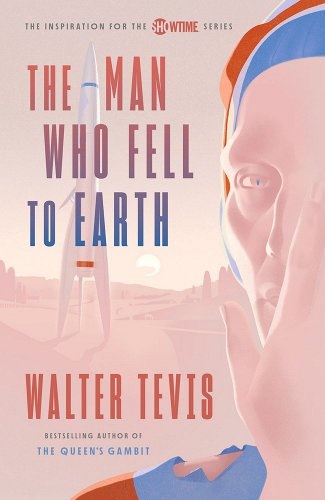 The work of Walter Tevis (1928-1984) has enjoyed a recent revival thanks to the runaway success of Netflix's The Queen's Gambit, based on his 1983 novel. On April 24, another adaptation based on a book by Tevis, The Man Who Fell to Earth (1963), premiered on Showtime. The novel was originally made into a movie in 1976, starring David Bowie as an alien disguised among humans hoping to rescue the dwindling remnants of his species stranded on a drought-stricken planet. The alien, going by Thomas Jerome Newton, patents his people's advanced technology and becomes exceedingly wealthy, though he falls victim to human vices and government interference. The film, directed by Nicolas Roeg, also starred Rip Torn and Candy Clark.
The work of Walter Tevis (1928-1984) has enjoyed a recent revival thanks to the runaway success of Netflix's The Queen's Gambit, based on his 1983 novel. On April 24, another adaptation based on a book by Tevis, The Man Who Fell to Earth (1963), premiered on Showtime. The novel was originally made into a movie in 1976, starring David Bowie as an alien disguised among humans hoping to rescue the dwindling remnants of his species stranded on a drought-stricken planet. The alien, going by Thomas Jerome Newton, patents his people's advanced technology and becomes exceedingly wealthy, though he falls victim to human vices and government interference. The film, directed by Nicolas Roeg, also starred Rip Torn and Candy Clark.
The Showtime series takes place 45 years after Roeg's film, with Bill Nighy playing Bowie's character and Chiwetel Ejiofor starring as a second alien come to Earth. The cast also includes Clarke Peters, Naomie Harris, Kate Mulgrew, Jimmi Simpson and Rob Delaney. Five of 10 episodes have aired so far. On May 10, Vintage released a new paperback edition of The Man Who Fell to Earth. It has also reissued a number of other novels by Tevis, including The Steps of the Sun, Mockingbird, The Hustler and The Color of Money. --Tobias Mutter
Read what writers are saying about their upcoming titles


